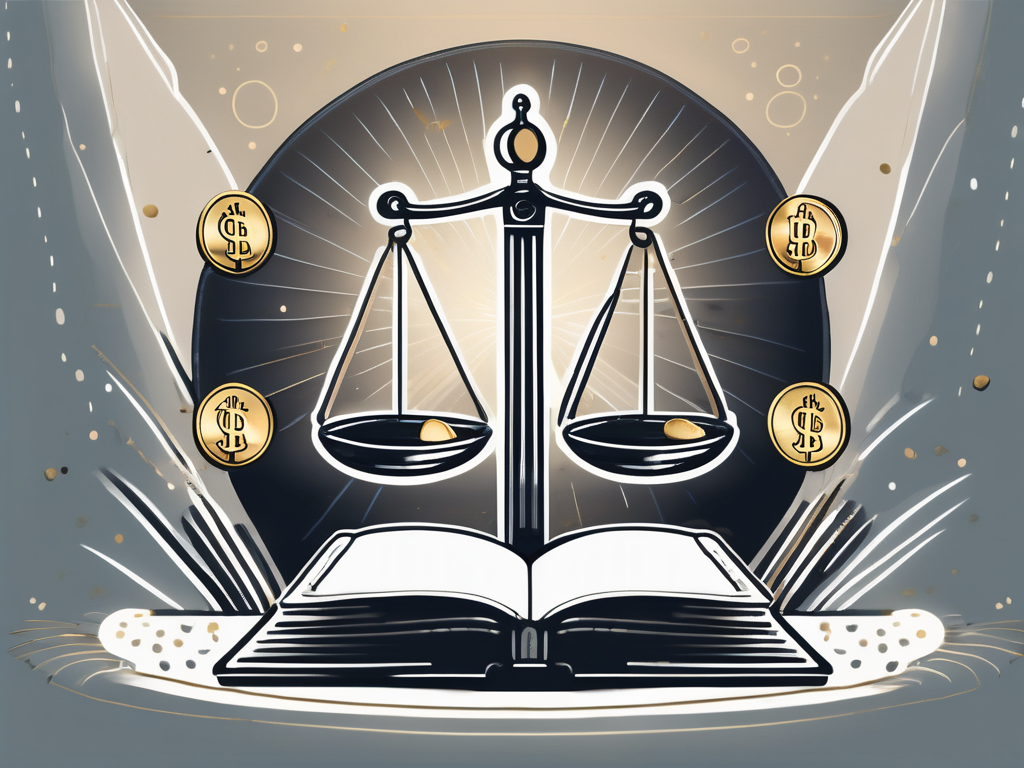People have been taken advantage of throughout history, and it is a painful experience that can leave long-lasting scars. But what does the Bible say about being taken advantage of? How does it address this issue and provide guidance for those who have been exploited? In this article, we will explore various biblical teachings on this topic, delve into different interpretations, and discover how faith can help us navigate through the challenges of exploitation.
Understanding the Concept of Being Taken Advantage Of
Before delving into the biblical perspective, it is important to understand what it means to be taken advantage of. Being taken advantage of refers to situations where someone exploits another person’s vulnerability, trust, or goodwill for their own gain. It can manifest in different forms – from financial exploitation to emotional manipulation.
When someone is taken advantage of, it can have a profound impact on their well-being and sense of self. The feeling of being used and manipulated can leave individuals feeling betrayed, hurt, and even questioning their own judgment. It can erode trust and make it difficult for them to form new relationships or trust others in the future.
Furthermore, being taken advantage of can have long-lasting consequences. Financial exploitation, for example, can leave individuals in a state of financial distress, struggling to recover from the losses they have incurred. Emotional manipulation can cause deep emotional scars, leading to anxiety, depression, and a diminished sense of self-worth.
Biblical Definitions and Interpretations
In the Bible, the concept of being taken advantage of often intersects with themes of justice, fairness, and righteousness. Throughout its pages, we find stories of individuals who faced exploitation and injustice. These narratives serve as a source of comfort and guidance for those who have experienced similar hardships.
One such story is that of Joseph, who was taken advantage of by his own brothers. His brothers, driven by jealousy, sold him into slavery. Joseph’s story is a testament to the resilience and faithfulness of God, as he eventually rose to a position of power and was able to forgive his brothers. This story offers hope to those who have been taken advantage of, reminding them that justice can prevail and that healing is possible.
Another biblical figure who experienced exploitation is the widow in the story of the unjust judge. In this parable, Jesus tells of a persistent widow who seeks justice from an unjust judge. Despite the judge’s initial disregard for her, the widow persists in her pursuit of justice. This story highlights the importance of perseverance and seeking justice, even in the face of exploitation.
The Role of Free Will and Manipulation
One aspect that the Bible acknowledges is the presence of free will. Humans have the capacity to make choices, even when those choices cause harm to others. This recognition of free will means that some individuals may use manipulation or deception to exploit others.
However, it is important to note that the Bible is clear in its condemnation of taking advantage of others. It emphasizes the importance of treating others with love, respect, and fairness. Exploitation goes against the principles of justice and righteousness that the Bible upholds.
Jesus himself spoke out against those who took advantage of others. In the temple, he overturned the tables of the money changers and drove out those who were exploiting the worshippers. This act of righteous anger demonstrates Jesus’ stance against exploitation and his desire for justice.
Ultimately, the Bible teaches that those who take advantage of others will face consequences for their actions. Whether in this life or the next, justice will be served. It is a reminder to those who have been taken advantage of that they are not alone, and that God sees their pain and will bring about justice in due time.
Biblical Teachings on Justice and Fairness
The Bible has much to say about justice and fairness in the context of being taken advantage of. Both the Old Testament and the New Testament provide insights into how we should respond when we face exploitation.
Old Testament Perspectives
In the Old Testament, we see God’s concern for justice demonstrated through various laws and commands. The Scriptures emphasize the importance of treating others fairly and caring for the vulnerable in society. For example, the Book of Proverbs contains many verses that caution against taking advantage of others and encourage acting with integrity.
One such verse is Proverbs 22:22-23, which states, “Do not exploit the poor because they are poor and do not crush the needy in court, for the LORD will take up their case and will exact life for life.” This verse highlights the divine intervention that awaits those who exploit others, emphasizing the need for justice and fairness.
Additionally, the prophets in the Old Testament spoke out against those who oppressed and exploited the weak, calling for justice to be established and for the rights of the marginalized to be protected. In Isaiah 1:17, the prophet declares, “Learn to do right; seek justice. Defend the oppressed. Take up the cause of the fatherless; plead the case of the widow.” This verse serves as a reminder of our responsibility to advocate for justice and fairness, particularly for those who are most vulnerable in society.
New Testament Perspectives
The New Testament builds upon the foundation of justice set in the Old Testament. Jesus, in His teachings, exemplifies the importance of love, compassion, and fairness. He often challenged societal norms and advocated for the well-being of those who were marginalized and mistreated.
One of the most well-known examples of Jesus’ teachings on justice and fairness is the Parable of the Good Samaritan (Luke 10:25-37). In this parable, Jesus tells the story of a man who was robbed, beaten, and left for dead on the side of the road. While religious leaders passed by without helping, a Samaritan, who was considered an outcast, stopped to care for the wounded man. This parable teaches us the importance of showing compassion and extending help to those in need, regardless of their social status or background.
Jesus’ teachings emphasize forgiveness and reconciliation, offering a path towards healing for both the exploited and the exploiters. In Matthew 5:38-39, Jesus says, “You have heard that it was said, ‘Eye for eye, and tooth for tooth.’ But I tell you, do not resist an evil person. If anyone slaps you on the right cheek, turn to them the other cheek also.” This radical approach challenges the notion of seeking revenge and instead encourages responding to exploitation with grace and understanding, while still standing for justice.
Furthermore, Jesus’ ultimate act of justice and fairness was demonstrated through His sacrificial death on the cross. Through His death, Jesus paid the price for our sins and offered redemption to all who believe in Him. This act of love and mercy serves as a powerful reminder of God’s desire for justice and His willingness to make things right.
In conclusion, the Bible provides a rich and comprehensive understanding of justice and fairness. From the Old Testament to the New Testament, we are called to treat others with fairness, advocate for the oppressed, and respond to exploitation with love and grace. As followers of Christ, we are called to embody these principles in our daily lives, reflecting God’s heart for justice and His desire to see all people treated with dignity and respect.
The Bible’s Guidance on Dealing with Exploitation
When we find ourselves in situations where we have been taken advantage of, the Bible offers guidance on how to navigate these difficult circumstances and find healing.
Exploitation is a deeply painful experience that can leave lasting scars on our hearts and minds. It can take various forms, such as emotional manipulation, financial abuse, or even physical harm. In these moments of vulnerability, it is essential to turn to the wisdom and guidance found in the Bible.
Seeking Divine Intervention
One powerful way to deal with exploitation is to seek God’s intervention. The Bible encourages us to bring our burdens to the Lord and trust in His justice. Through prayer and seeking divine guidance, we can find comfort, strength, and wisdom in dealing with the aftermath of exploitation.
When we feel overwhelmed by the pain and injustice we have experienced, we can find solace in knowing that God sees our suffering. He is a compassionate and loving God who desires to bring healing and restoration to our lives. By placing our trust in Him, we can find the strength to persevere and overcome the challenges that exploitation brings.
The Power of Forgiveness and Reconciliation
Forgiveness is a challenging but transformative act. The Bible teaches us that forgiveness releases us from the burden of anger and bitterness. While forgiveness does not excuse the actions of the exploiter, it allows us to move forward and find healing.
Letting go of resentment and choosing to forgive can be a long and difficult journey. It involves acknowledging the pain we have endured and making a conscious decision to release the desire for revenge. By extending forgiveness, we free ourselves from the chains of hatred and open the door to personal growth and emotional well-being.
Reconciliation, on the other hand, involves rebuilding trust and restoring relationships. While it may not be possible or safe in every situation, the Bible encourages us to pursue reconciliation when appropriate, extending an opportunity for transformation and redemption.
Rebuilding trust after exploitation can be a complex process. It requires open communication, genuine remorse from the exploiter, and a commitment to change. While reconciliation may not always be possible, it is a testament to the power of forgiveness and the potential for healing and restoration.
Ultimately, the Bible’s guidance on dealing with exploitation reminds us that we are not alone in our pain. God is with us every step of the way, offering comfort, strength, and guidance. Through seeking divine intervention and embracing forgiveness and reconciliation, we can find healing and reclaim our lives from the grip of exploitation.
The Role of Faith and Trust in Preventing Exploitation
Although we cannot entirely prevent the possibility of being taken advantage of, the Bible provides guidance on how we can build resilience to protect ourselves.
Exploitation is a pervasive issue in our society, and it can manifest in various forms such as financial scams, emotional manipulation, or even physical abuse. It is essential to equip ourselves with the necessary tools to recognize and combat exploitation.
Building Spiritual Resilience
Developing a strong spiritual foundation through prayer, meditation, and studying God’s Word can help us discern situations of exploitation and manipulation. When we immerse ourselves in the teachings of the Bible, we gain wisdom and insight that enable us to identify red flags and make informed decisions.
Furthermore, faith strengthens our ability to recognize and resist tactics used by those seeking to take advantage of us. It empowers us to trust our instincts and stand firm in our convictions, even in the face of manipulation.
By building spiritual resilience, we cultivate a deep sense of self-worth and value that makes it harder for others to exploit us. We understand our worth as children of God and refuse to settle for anything less than the respect and dignity we deserve.
Trusting in Divine Protection
The Bible reminds us that we are not alone in our journeys. God’s promise to protect and guide us gives us the confidence to face difficult situations with the assurance that He is with us. In times of vulnerability, we can lean on His strength and trust in His divine intervention.
Trusting in His protection can alleviate anxieties and empower us to navigate through challenging circumstances. It allows us to let go of fear and embrace a mindset of resilience and courage.
However, it is important to note that trusting in divine protection does not mean being passive or complacent. We must still take practical steps to protect ourselves, such as setting boundaries, seeking support from trusted individuals, and educating ourselves about potential risks.
By combining our faith with practical wisdom, we create a powerful shield against exploitation. We become more discerning, assertive, and equipped to navigate the complexities of our world.
Ultimately, faith and trust play integral roles in preventing exploitation. They empower us to recognize our own worth, make informed decisions, and seek divine guidance in times of vulnerability. As we continue to build our spiritual resilience and trust in God’s protection, we can navigate through life with confidence and resilience.
Applying Biblical Teachings to Modern Day Exploitation
Biblical teachings are not limited to ancient times but can be applied to our modern-day experiences of exploitation. Here are some practical steps that today’s believers can take:
Lessons from Biblical Characters
The Bible presents stories of individuals who faced exploitation but overcame their circumstances through their faith in God. By studying these narratives, we can gain insights and inspiration on how to respond to exploitation in our own lives.
Practical Steps for Today’s Believers
Today’s believers can actively work towards preventing exploitation by promoting justice and equality. This may involve supporting organizations that advocate for the rights of the vulnerable, speaking out against injustice, and actively promoting fair treatment in our communities.
Furthermore, by fostering a culture of love, respect, and empathy, believers can create environments where exploitation is less likely to thrive.
Conclusion
In summary, the Bible addresses the issue of being taken advantage of by providing guidance, comfort, and practical steps for believers. It highlights the importance of justice, fairness, forgiveness, and reconciliation. By applying these teachings to our lives, we can find healing, take proactive steps to prevent exploitation, and create a society that reflects God’s heart for justice and equality.











